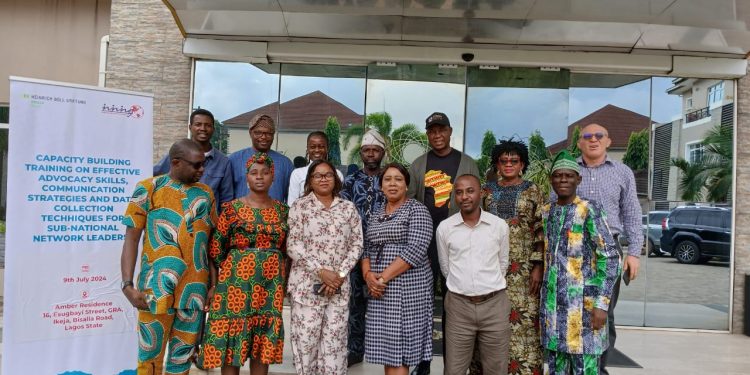The Nigeria Network of NGOs, (NNNGO) has trained Civil Society Organizations (CSOs) on advocacy tools to enhance effective operational environments for CSOs across the 36 states of the federation.
The capacity building was an opportunity for CSOs to be empowered with effective advocacy skills, communication strategies and data collection techniques to allow for robust interaction and co-creation of plans of action.
The advocacy tools largely focus on how to do proper research in gathering evidence for the issues that CSOs want to engage stakeholders: government, private sector or civil societies; how to do partnerships; how to communicate the message, how to get target audience, data collections among others.
While speaking to participants at the training, the Executive Director of NNNGO, Oyebisi Oluseyi said the tools are useful for other regulatory issues that CSOs want to engage in.
While commending CSOs for all the good work they are doing across the communities in Nigeria, Oyebisi said, “we know your impact and now we need to communicate our impact more to the government, so we need to document what we do.”
He added that when there are laws that regulate our work, we comply and we can then use compliance as a pushback on some of those laws because “it is when we comply that we then know what the challenges are with those regulations, we can then use that to engage the government on what needs to change.”
As a body, he said, “the next for is NNNGO is to see how sub-national networks can take over conversations with state regulators. But at this point, we have to find common problems and solutions to them, implement them, and monitor to see whether they impact the good we want to see. Eventually, a good regulatory framework helps the common man and that’s what we want to see,” Oyebisi stated.
The Executive Director of Glowing Splints Development Initiative (GSDI), Olubunmi Francis, who acknowledged that the training has been impactful, said, “I picked up new things, especially with regards to data collection, putting together an advocacy brief, even proposal development and about three other techniques.
“They are also very new to me and I’m hoping that, going forward, I will use these tools in my advocacy proposal development,” she added.
Also, the Executive Director of the Public Health Sustainable Advocacy Initiative (PHSAI), Abiodun Ajayi said, “this training was another way of refreshing myself, relearning and unlearning some of those advocacy skills that I’ve learnt over the years.
“Moving forward in our advocacy project and effort, we will always consider all of these things that we’ve learnt and I hope that we will get better.”

